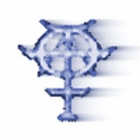“The images of the unconscious place a great responsibility upon a man. Failure to understand them, or a shirking of ethical responsibility, deprives him of his wholeness and imposes a painful fragmentariness on his life.”
Field: Psychiatrist.
Born: 26 July 1875, Kesswil.
Background: Jung’s broad interests – biology, zoology, paleontology, philosophy, and the history of religion – made his choice of career difficult. He studied medicine at the University of Basel from 1895-1900. Received his MD from the University of Zurich in 1902. Later he studied psychology in Paris. Began his professional career in 1900 at the University of Zurich, where he worked out methods of “association testing” and coined the term “complex.” He sent his publication Studies in Word Association (1904) to Sigmund Freud, marking the beginning of their collaboration and friendship from 1907 to 1913. Ultimately, Jung accused Freud of dogmatism, while Freud reproached Jung for mysticism. From 1913 to 1921 he developed the basic structure of his own model of the human psyche, now called Jungian Typology, and his definition of archetypes in the human subconscious. The focus of his interest was the realm of the collective unconscious – he understood all human fantasies as being universal and archetypal – and his sources were historical and mythological as well as personal and empirical. The methods he evolved depended on the acceptance of irrational impulses and bizarre symbology, along with the careful observation and recording of every fantasy, vision, dream, and thought, however odd. He saw the process of becoming whole – consciousness of the unconscious – as the central concept of developmental psychology and called it “the individuation process.” Ultimately, after suffering ostracism for his beliefs and approaches for many years, he came to realize that there was a strong relation between his own quest for knowledge of the psyche and the works of the 17th century Alchemists. He died in 1961 at the age of eighty-five.
Works: Studies in Word Association (1904), The Psychology of Dementia Praecox (1907), Psychology of the Unconscious (1912), The Relations between the Ego and the Unconscious (1916), Two Essays on Analytical Psychology (1916, 1917) Psychological Types (1921), On Psychic Energy (1928), The Secret of the Golden Flower (with Richard Wilhelm, 1929), Synchronicity : An Acausal Connecting Principle (1955).
Lesson: Who looks outside, dreams. Who looks inside, awakens.
